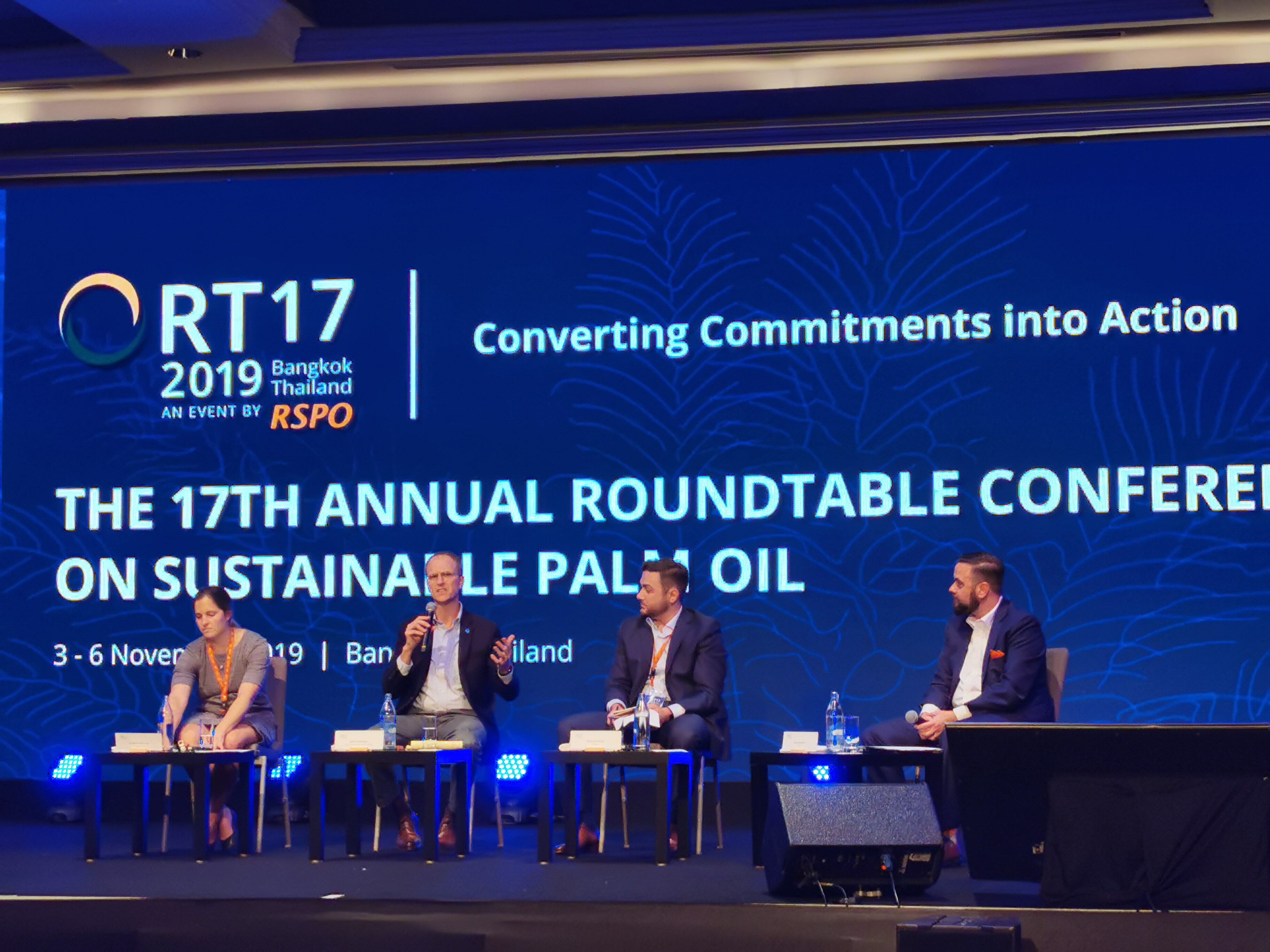According to the Roundtable for Sustainable Palm Oil (RSPO) Annual Communication of Progress (ACOP) 2018 data, the largest demand seen for CSPO by sector is in F&B at 75%, followed by personal care at 22% - but at current rates this demand is not going to be enough.
“Based on projections that growers adhere to the RSPO 2023 deadline to have all management units certified, there will be [at least] 28 million tons of certified production, but demand projections show insufficient uptake,” RSPO US Representative for Outreach and Engagement Dan Strechay said during the recent RSPO RT17 event in Bangkok in a plenary session on increasing CSPO uptake.
“Basically, what we are going to have by 2030 will be a situation where there are not enough RSPO members to actually use the CSPO produced,” he said.
“The bulk of demand [mainly] comes from consumer goods manufacturing companies in Europe and North America, [but the insufficient uptake] is mainly from developing markets such as India and China.”
Conservation International Vice President, Sustainable Production, Center for Environmental Leadership in Business John Buchanan who also spoke at the plenary session concurred, emphasising on the vital role downstream players have in driving demand in Asia.
“The most important thing here is downstream, as these players are the ones that send an extremely important signal to producers about sustainable palm oil,” he said.
“Multinationals especially have a good deal of influence, and can use their presence in Asia markets to create a flow of CSPO there. All the leading companies should be encouraged to increase uptake [and in turn get] smaller suppliers to be supplying 100% CSPO too.”
He stressed the difference between making a commitment and actual action, and the importance of the latter.
“It’s not as simple as just saying ‘Hey, I’ve made my commitment, now you go and figure it out’ – No, a lot more collaboration is needed to figure our new models and systems to drive region-wide transformation,” said Buchanan.
“At the end of the day, sustainability decisions are made in the field by farmers and growers, so it needs to be made sure that incentives and premiums [from going sustainable] are making the way to them.”
So whats to be done?
In accordance with this. business sustainability NGO Ceres’ Senior Manager, Food and Forests Dr Meryl Richards revealed a major gap between commitment and implementation in a separate presentation.
“Although almost 500 companies have made sustainability commitments [so far, we have found that] only 21 of these have actually reported quantitative progress in implementation,” she said.
“So we can see that implementation is a challenge, and there are really two things that downstream companies should be doing to tackle this, a carrot-and-stick approach.
“The first, or the stick, is non-compliance protocols – commitments [should not be made] with no penalty is not complied to. The second is the carrot, which is education and financial support for implementation, especially for smallholders. Both are equally important.”
The role of retailers
Strechay added that RSPO ACOP data also revealed the significant role that retailers, such as American MNC Walmart, play in driving CSPO uptake.
“Data from 2014 through to 2018 showed high uptake amongst retailers, but not quite yet [in amounts as large as consumer goods manufacturers as this is coming from a low base,” he said.
According to Walmart Senior Manager for Sustainability Mark Eastham, one of the main drivers for this was that consumers already expect the retailer to be using sustainable palm oil where necessary, especially in locations such as the United States.
“When consumer demand goes up, industry will be quick to respond,” he said.
“However, it is important to identify the correct key drivers in each geography – in Europe for example, consumers there know much more about palm oil than the US [and also expect more], whereas in terms of demographics we know the younger generation cares more about and expects this when buying products.”
Walmart has committed to using sustainable palm oil in 100% of its private brand products by 2020, and is also a major supporter of the jurisdictional approach.





